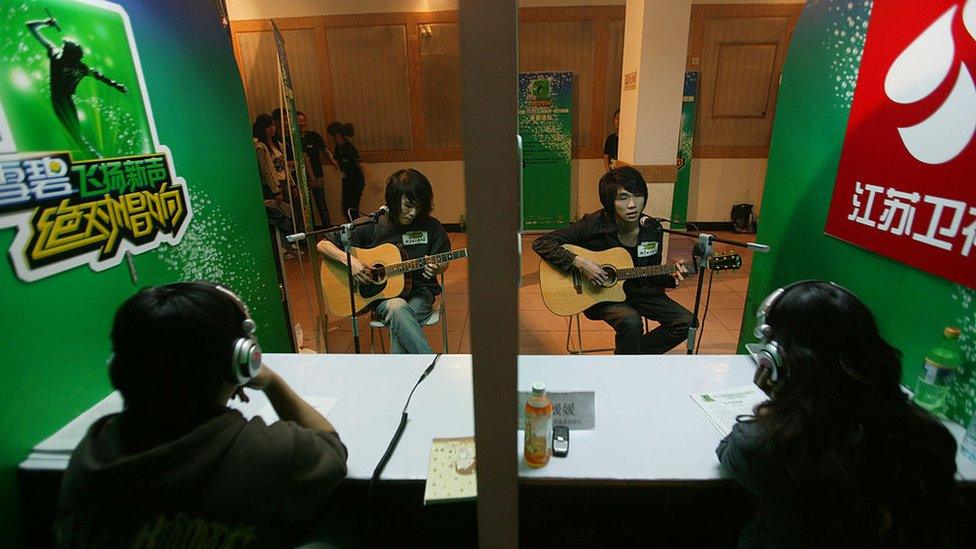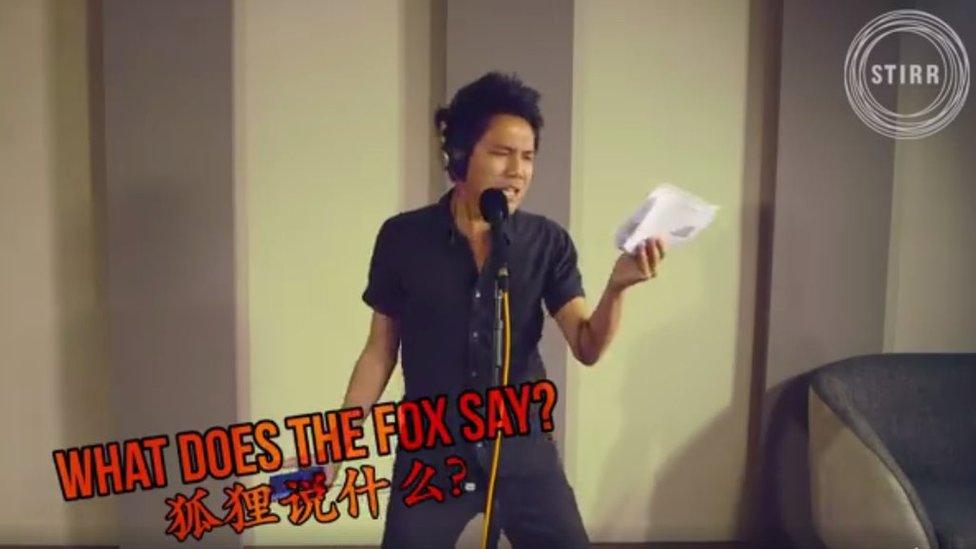The Voice irks Singapore with Mandarin proviso
- Published

The show is produced by Singaporean company mm2 Entertainment
Singapore and Malaysia are about to get their own version of singing contest The Voice - but the catch is that it only wants contestants who can perform in Mandarin, a move that has prompted mixed reactions.
It has also exposed the uncomfortable realities of show business in a region that is increasingly wooing China's vast market.
How did all this begin?
Earlier this month the Singaporean company producing the show, mm2 Entertainment, announced auditions for The Voice.
It would be produced and broadcast for both Singapore and Malaysia at the same time.
"You are welcome to join as long as you are at least 16 years old, have a good voice, are fluent in Mandarin, and are able to perform Mandarin songs," it said. , external
What's wrong with that?
Singapore and Malaysia have diverse populations, which include among their ethnicities Chinese, Malays, Indians and others.

People unfamiliar with Singapore are often surprised to learn the predominant language is English, with Mandarin, Tamil and Malay all also official languages. Malaysia uses both English and Malay.
Many have said the Mandarin requirement effectively discriminates against Singaporeans and Malaysians who are not Chinese, and goes against the two countries' multicultural, multiracial approach.
Singaporean musician Bani Haykal criticised the producers on Twitter , externalfor being culturally "insensitive", adding: "This isn't a singing competition, it's [a] network circus attempting to show off what they've got in order to enter a bigger marketplace."
Some have chosen to respond with humour, like this satirical video, external which offers a Mandarin translation service for those seeking to join "talent shows with deeply biased and semi-racist rules".
This is about business, right?
Basically yes. The Mandarin Chinese-speaking market is huge, and hungry for new singing talent. Breaking into that market is the key to huge success.
mm2 Entertainment also told The Straits Times newspaper, external that it had only acquired the rights to the show in Mandarin because it was the "most commercially viable".
The contestants would also have to speak to the judges in Mandarin "including during the coaching sessions, which are integral to the show format".
The company told the website Bandwagon, external that contestants would also "be allowed to perform songs of different languages that showcase their best talents".

Singing contests have taken off in China in recent years
Facebook user Gina Leong pointed out that for people from the region singing in English, the "US and UK market is almost impossible to break into".
She added: "The next best thing is [the] Mandarin pop market which targets China, Taiwan, HK [Hong Kong] and overseas Chinese."

The video translates lyrics of popular English songs such as What Does the Fox Say?
Ethnic Chinese from Singapore and Malaysia have in the past competed in talent shows held in mainland China, in the hope of launching their careers in the Chinese entertainment world.
Singaporean singer Nathan Hartono last year came in second in Sing! China, a show closely modelled on The Voice.
'My language is not the same'
In a widely shared Facebook commentary,, external Singaporean poet Alfian Sa'at said he was tired of people "seeing no problem when Chineseness is squarely equated with Singapore when it is just one square in the giant patchwork that is Singapore culture".
"I am tired of having to remind others that I exist too, that my language is not the same as yours."
But he said he would remain open as "however difficult it is to de-link language and power, one has to do it because it will otherwise trap your ways of thinking".
He added: "Though there are dominant languages they do not exist to dominate, and though there are minority languages their fate is not to be subordinate."